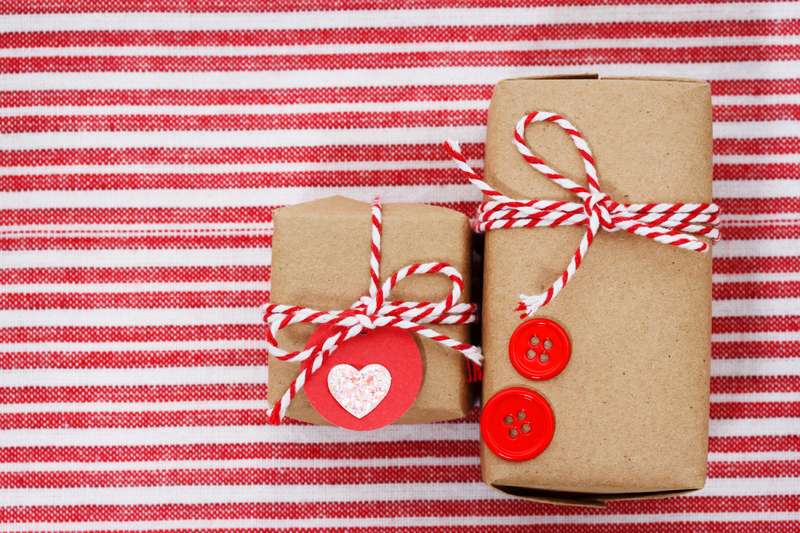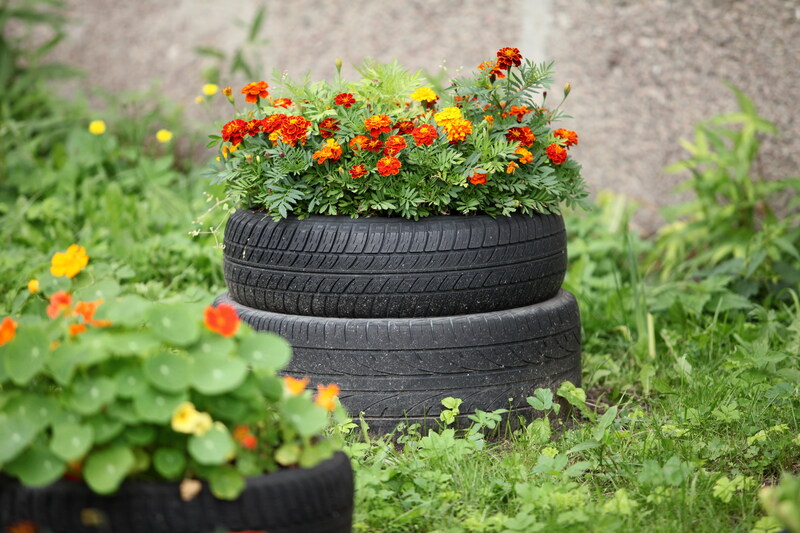Simplify Your Life with Easy Plant Pot Disposal
Are you staring at a growing pile of empty plant pots in your garden shed, wondering how to handle them responsibly? You're not alone. Easy plant pot disposal is a nationwide concern as gardening grows in popularity, leading to unnecessary clutter and environmental worries. In this comprehensive guide, you'll discover stress-free ways for plant pot recycling, sustainable disposal, creative reuse, and more. Say goodbye to confusion and hello to a decluttered, eco-friendly lifestyle!
Why Is Efficient Plant Pot Disposal Important?
Every gardener accumulates used pots, trays, and containers over time. While it's tempting to stash these away for future use, eventually, they turn into clutter and can even pose safety hazards. Efficient disposal of plant pots offers several notable benefits:
- Reduces mess and clutter in your gardening spaces
- Prevents plastic waste from ending up in landfills or natural habitats
- Encourages sustainable gardening habits
- Helps protect wildlife from potential hazards
- Creates room for new plants and creative projects
Whether your collection consists of plastic, terracotta, ceramic, or biodegradable pots, the steps you take for disposal can significantly impact your environment. Let's simplify your life with responsible and easy plant pot removal strategies.

Understanding Plant Pot Materials
Common Types of Plant Pots Found in Homes
- Plastic plant pots: Lightweight and affordable, often recyclable
- Terracotta: Natural clay pots, sturdy but prone to breaking
- Ceramic: Decorative, glazed or unglazed, sometimes with paints or finishes
- Biodegradable pots: Made from materials like peat, coir, or paper
Knowing the material is essential for eco-friendly plant pot disposal, as different materials require different handling and recycling techniques.
Easy Ways to Dispose of Plant Pots
1. Recycle Your Plant Pots
Plant pot recycling is a green solution that prevents pots from ending up in landfills, especially for plastic and terracotta materials. The process varies based on your local council and the recycling facilities available.
- Check Local Recycling Rules: Many local councils accept plastic pots, but others do not. Visit your municipality's website or contact their waste department to confirm.
- Clean Before Recycling: Rinse pots to remove soil or chemicals. Dirty pots may contaminate the recycling stream.
- Drop-Off at Garden Centers: Many garden centers, such as Home Depot, Lowe's, or independent nurseries, have collection bins for plastic pot recycling. Simply bring your clean, empty pots and deposit them in the provided containers.
- Participate in National Recycling Campaigns: Join initiatives like the "Pot Recycling Month" or programs from plant brands, which make recycling plant containers easier and more accessible.
Tip: Not all plastics are recyclable. Look for codes #2 (HDPE) and #5 (PP) at the bottom of pots for best recyclability.
2. Compostable and Biodegradable Pot Disposal
Biodegradable pots--made from coir, peat, paper, or other plant-based materials--offer the simplest disposal solution. Compost them! Add these pots directly into your compost bin or bury them in the soil where they break down naturally over time, enriching your garden without any extra effort.
- Break down larger pots into smaller pieces to speed up decomposition.
- Avoid composting pots with non-biological coatings or paints.
3. Repurpose Plant Pots Creatively
Let your imagination soar! Repurpose old plant pots for purposes inside and outside your home. This not only reduces waste but also adds charm and functionality. Here are some creative ideas:
- Organize Tools: Use pots to keep gardening tools, pens, or kitchen utensils in order.
- DIY Crafts: Paint, decorate, or stack pots to make garden art, candle holders, or bird feeders.
- Seed Starters: Small pots are excellent for starting seeds or propagating plant cuttings.
- Gift Containers: Fill clean pots with herbs or goodies for unique homemade gifts.
- Planters for Succulents or Cacti: Broken ceramics and terracotta pots make whimsical mini-gardens.
Get the whole family involved--repurposing is fun for all ages!
4. Donate Usable Pots
If your plant pots are in good condition, don't throw them away. Donation is an easy plant pot disposal option that benefits others. Consider these recipients:
- Community gardens or local gardening clubs
- Schools and teachers for science or art projects
- Charity shops with garden sections
- Friends, neighbors, or local "freecycle" groups
Always give pots a quick wash before donating to prevent disease or pest transmission between gardens.
5. Responsible Disposal of Broken Pots
If plant pots are cracked or smashed beyond repair, here's how to dispose of them:
- Plastic Pots: If recyclable, break them into smaller pieces before placing them in the recycling bin (check local guidelines).
- Terracotta/Ceramic Pots: Use shards as drainage layers in other pots, create garden mosaics, or bring to municipal recycling centers with a construction waste section.
- Non-recyclable Plastics: Unfortunately, these go into the general waste if no other solutions exist. Try to limit purchasing non-recyclable pots in the future for a greener approach.
Choosing the Best Plant Pots for Easy Disposal
Planning ahead can make plant pot disposal easier in the future. Consider the following when selecting new containers:
- Buy Biodegradable Pots: Ideal for starting seeds and transplanting, these can go directly into your compost or garden after use.
- Opt for Recycled Plastic Pots: Many brands now offer containers made entirely from recycled materials, supporting the circular economy.
- Invest in Durable, Reusable Pots: High-quality terracotta, ceramic, or heavy-duty plastic pots can be reused season after season.
- Choose Locally Manufactured Containers: Reduce carbon footprint from shipping and support sustainable local businesses.
Look for clear recycling symbols and ask garden centers about their environmental policies before purchasing new plant containers.
Plant Pot Disposal FAQs
-
What plastics are plant pots made of?
Most plastic plant pots are made from polypropylene (#5) or high-density polyethylene (#2). These are commonly accepted by recycling programs but always check the symbol and local rules. -
Can black plant pots be recycled?
Some recycling machines struggle to recognize black plastics, but more centers are updating their systems. Ask your local provider; if unavailable, try garden center take-back programs. -
How do I know if my pot is biodegradable?
Look for "compostable," "biodegradable," or "made from peat/coir/paper" labels. If unsure, check with the manufacturer. -
Should I remove labels or stickers before recycling?
Yes, peeling off labels helps the recycling process and yields cleaner materials. -
What should I do with really old or rare pots?
Antique or decorative pots may have value. Consider selling or donating them to vintage shops or collectors.

Eco-Friendly Gardening Begins with Simplified Disposal
Plant pot disposal doesn't have to be a headache. By following these easy plant pot removal methods, you'll contribute to a cleaner, greener community and free up valuable space for your next gardening adventure. Prioritizing plant pot recycling, creative reuse, responsible donation, and choosing better pots up front makes the whole process virtually effortless.
*Ready to Simplify Your Plant Pot Disposal Process?*
- Sort your pots by material and future use
- Recycle, reuse, or donate as many as possible
- Compost those made from biodegradable materials
- Limit purchases of non-recyclable plastics moving forward
Adopting these habits helps you:
- Declutter your home and garden
- Support the environment
- Make gardening simple and enjoyable
- Set a positive example for friends and neighbors
Conclusion: Start Simplifying Today
Managing plant pot disposal with purpose and creativity is not only beneficial for the environment, but it also streamlines your gardening life. With a bit of planning and knowledge, anyone can master responsible plant pot disposal--ensuring their gardening hobby stays sustainable, affordable, and clutter-free.
Take action now: Round up those unused pots and designate their next destination. Whether you recycle, repurpose, or donate, you'll enjoy a cleaner, greener space to nurture your love for plants without the burden of waste. Simplify your life with easy plant pot disposal and watch both your garden and your peace of mind flourish!